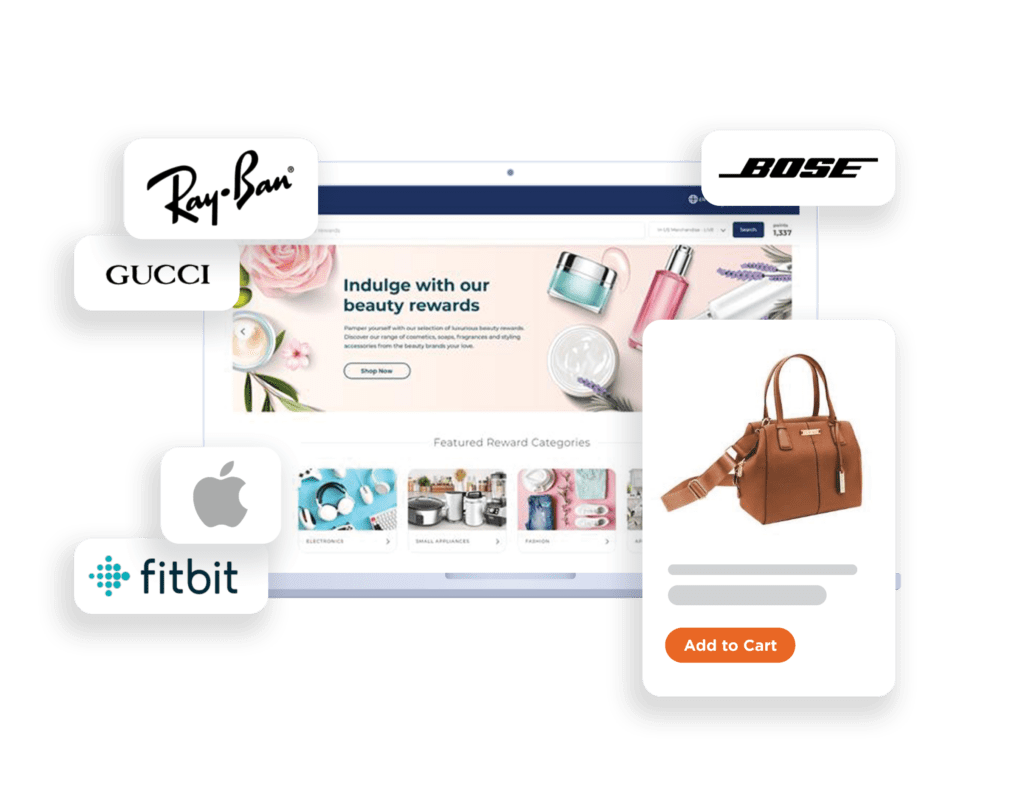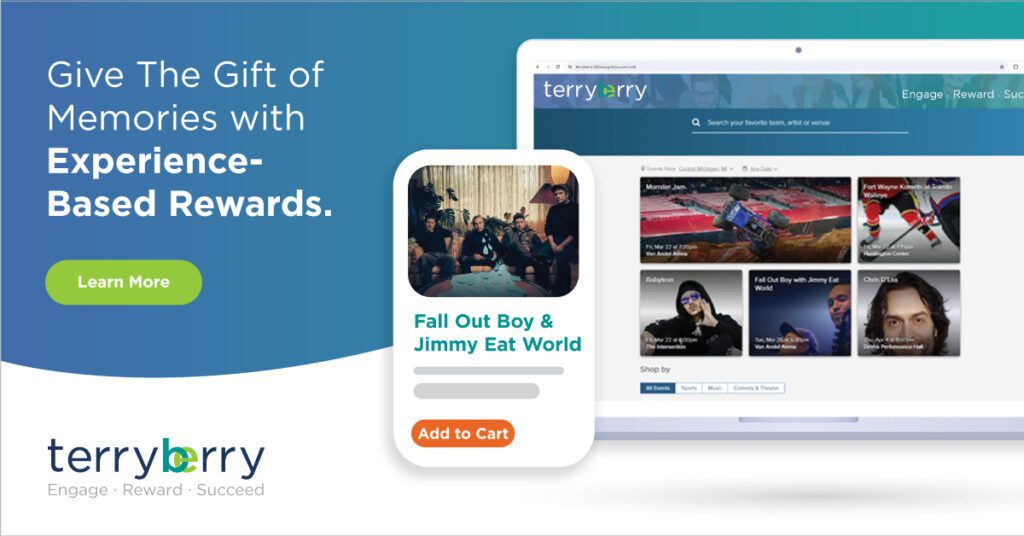July 29, 2024

Are you looking for ways to motivate your sales team and drive better results? Have you considered implementing a sales incentive program but don't know where to start? Well, you're in luck!
Sales incentive programs are a multibillion dollar industry in the US, and when done right, can be a powerful tool to engage and motivate your team. But designing and implementing one can be overwhelming - get it right and your business can reach new sales records. Get it wrong, and you've wasted significant money, time, and resources.
In this step-by-step guide, we'll show you how to unlock your team's maximum potential with a sales incentive program that works. From setting to measuring success, we've got you covered.
What is a Sales Incentive Program?
A sales incentive program is a strategic system of rewards and recognition designed to motivate your team to achieve specific sales goals. It can take many forms, from monetary bonuses and prizes to non-cash rewards, such as gift cards or additional vacation days.
The goal of an effective sales incentive program is twofold: first, it encourages salespeople to meet and exceed sales goals. Second, it creates a motivating environment that helps employees feel appreciated and recognized by sales managers and the broader team for their hard work.
Structuring sales incentive programs effectively is crucial to align with base compensation and annual promotions, demonstrate program ROI, and influence desired behaviors earlier in partner relationships.
Types Of Sales Incentives
To maximize productivity, sales incentives should be tailored to the needs of a business, its team members, and other unique needs — they aren’t just for top performers.
Here are some ways to motivate your team:
- Role-specific: These role-specific incentives are designed to reward specific roles and tasks, like sales reps closing a certain number of deals or hitting a revenue goal.
- Presales incentives: Presales incentives (sometimes called split incentives) are rewards offered to employees involved in the presales phase of the sales process, like lead generation, customer research, product demonstrations, proposal development, and other tasks that support the sales team before a deal is closed.
- Performance-based: Performance-based incentives include bonuses, commissions, and stock options that are tied to individual sales performance.
- Territory-based: Territory-based incentives are designed to reward sales reps who expand the company’s market reach.
- Team-oriented: Team-oriented incentives recognize the collective success of the team as a whole and reward the entire group for reaching their goals.
- Non-cash: Non-cash incentives can include gift cards, additional vacation days, or other rewards that have an emotional value but no monetary worth. Non-monetary rewards can sometimes hold just as much weight as cash-based rewards. These types of rewards can effectively motivate your sales team by enhancing team pride and performance.
These are just some types of incentives that sales leaders can use to increase motivation and engagement among your team. No matter which type of sales incentive plan you choose, it’s important to use a variety of rewards that will motivate your team and recognize their efforts.
Benefits of a Sales Incentive Plan

An effective sales incentive plan offers a variety of benefits that can significantly impact a business’s performance and employee satisfaction. Here are some key benefits:
Increased Sales and Revenue: Incentive programs motivate sales teams to achieve and surpass their targets, leading to higher sales and increased revenue.
Improved Employee Motivation and Engagement: Sales incentives can boost morale and create a more motivated workforce. Employees who feel rewarded for their efforts are more likely to stay engaged and productive. A sales manager can tailor specific incentives to individual roles and responsibilities, enhancing motivation.
Enhanced Team Performance: Incentive programs can encourage healthy competition among team members, driving overall team performance and collaboration.
Employee Retention: Offering rewards and recognition helps retain top talent, as employees feel valued and appreciated, reducing turnover rates.
Goal Alignment: Incentive programs help align individual goals with company objectives, ensuring that employees focus on activities that drive business success.
Clear Performance Metrics: Incentive programs often require clear performance metrics, helping both employees and managers understand what is expected and how performance is measured.
Innovation and Creativity: Sales teams may come up with innovative strategies and creative solutions to meet their targets, fostering a culture of innovation.
Positive Work Environment: Recognition and rewards contribute to a positive work environment, where employees feel appreciated and motivated to perform their best.
Attraction of Top Talent: Competitive incentive programs can attract high-performing sales professionals to the company.
Implementing an effective sales incentive program requires careful planning to ensure it aligns with business goals, is fair, and provides meaningful rewards.
Choosing the Right Employee Sales Incentive Program for Your Company

Choosing the right employee sales incentive program for your company is a crucial decision that can impact the success of your sales team. To create an effective program, there are several factors to consider. It is essential to align incentives with different roles, including account managers.
Size of Your Team
The size of your sales team will play a significant role in determining the type of sales incentive program you choose. For larger teams, a tiered program may be more effective. With this structure, rewards increase as the team hits specific targets.
However, smaller teams may benefit more from an individual incentive program, where each salesperson is given their own goals and rewards.
Budget Constraints
When creating a sales incentive program, it's essential to consider budget constraints. It's crucial to find a balance between allocating sufficient resources to incentivize your sales team without overspending.
To help, you may need to consider offering non-monetary incentives such as a VIP parking spot, vacation days, or other perks to keep within budget constraints.
Choose Meaningful Rewards
To ensure your sales incentive program's success, it's essential to choose meaningful rewards that your team values.
These can include monetary incentives like bonuses or commission increases or non-monetary incentives like extra vacation days or work-from-home days. Choose rewards that are valuable to your team and that can help improve their quality of life.
5 Steps to Creating a Sales Incentive Program

Step 1: Set Clear Goals
Before you can create an effective incentive program, you need to set clear goals. Start by analyzing the performance of your current team and determine what they should be striving for in order to achieve success. Then, make sure the goals are measurable and easy to understand so that your team can track their progress towards them.
Step 2: Choose Appropriate Incentives
Once you have set clear goals, you need to choose appropriate sales incentive programs that will motivate your salespeople to achieve those goals. It’s important to consider what types of rewards will be most meaningful to your team and make sure the incentives match the value of the goals.
Step 3: Establish a System for Measuring Success
To ensure that your sales incentive program is effective, you need to establish a system for measuring success. This could include tracking metrics such as the number of closed deals or total revenue generated. However, it's important to collect the right data and regularly review it so that you can adjust your program as needed.
Step 4: Communicate Clearly
Once you have established a system for measuring success, it's essential to ensure that everyone is on the same page. Make sure to communicate clearly with your team about the goals, incentives, and system for measuring success. This way, everyone understands what they need to do in order to qualify for rewards and can track their progress toward achieving them.
Step 5: Celebrate Achievements & Recognize Progress
Finally, it's important to celebrate achievements and recognize individual successes along the way. This will help build a sense of camaraderie within your team and make them feel appreciated for their hard work.
Sales Incentive Ideas
The best way to learn what your team values is to learn about them as people. Get to know how they spend their free time and what hobbies they enjoy. You may find some people thrive on competition while others enjoy taking classes and love to learn.
Knowing what appeals to your team is the only way to offer them relevant incentives that work. And because everyone on your team will have slightly different motives, it may be beneficial to offer different types of incentives at the same time.
Here are some sales incentive ideas, other than money, to get you started.
Experience Incentives
Because values have shifted in recent years, more experience-based rewards are becoming increasingly popular. Many people are more inclined to prefer spending quality time with friends or family than receiving a gift card, for example. Being able to give that to these people will resonate in a meaningful way.
Experience Incentive Ideas:
- Tickets/season passes to a sporting event
- Movie tickets package
- Tickets to a concert of their choice
- Travel coupons (hotels, airlines, etc.)
- A team “daycation” (visit an escape room, go go-karting, or do a scavenger hunt)
- Extra PTO (to spend how they choose)
Physical Gift Incentives

Depending on what’s going on in your team’s lives, a physical gift may be just what they need. Some people may be moving, others may be tackling a home remodel, or maybe some simply haven’t treated themselves in a while.
Offering up an award where the winner can shop for an item of their choosing could not only show appreciation, but also excite your employees.
An online recognition platform can be a convenient way to offer awards of this type. A solution like Terryberry’s, has a convenient online storefront that’s built right into the platform itself.
When someone receives an award, they’re then able to shop the storefront’s wide range of items and redeem their award seamlessly.
Gift Ideas:
- Tech prizes (smart watches, tablets, headphones, speakers, etc.)
- Kitchen appliances (air fryer, Instapot, espresso machine, etc.)
- Clothes/jewelry
- Baby supplies (clothes, toys, diaper bags)
- Camping equipment
Development Incentives

Just as some people enjoy spending their free time at a ball game, others might prefer personal development opportunities. These can be opportunities for career growth, physical fitness, or learning about a particular subject. Incentives like these can have a clear benefit to the company as well as the individual.
Development Incentives:
- Courses for career development (public speaking, advanced sales techniques, and seminars)
- Learn a new language
- A membership to a gym or yoga studio
- A Headspace or Calm subscription
- A Masterclass of their choosing
- Time off to volunteer
Ensure Rewards are Commensurate with Goals
Your sales incentive program's success will depend on how well the rewards match the goals you set. If the reward is not significant enough, your team may not be motivated to reach their targets.
Similarly, if the reward is too high, it may not be sustainable for the company. Ensure that the rewards are commensurate with the goals you set and that they are achievable. Great incentives can have a great impact on your sales strategy.
Sales Incentives for Top Performers

If you're looking for a sales incentive program specifically for your exceptional salespeople, consider a President's Club program.
What is President's Club?
Terryberry's President’s Club program will recognize and award your top performers, the best of the best within your sales teams. Typically, this is an annual employee recognition program that rewards those who have met or exceeded sales goals and quotas.
These clubs involve prestigious award packages that are symbolic, meaningful, and reflect the success of those salespeople. In addition to these award packages, most companies also recognize and reward their top sales performers with an all-inclusive trip!
Unlock Your Sales Team's Potential with a Well-Designed Sales Incentive Program
Creating a successful sales incentive program can be a powerful tool to motivate and reward your sales team. These programs can help drive better results and achieve your business goals.
By taking the time to consider factors such as the size of your team, budget constraints, meaningful rewards, commensurate rewards, and clear communication, you can design a program that maximizes its impact on your sales team's performance.
Implementing a sales incentive program requires effort and attention to detail, but the rewards can be significant. A well-designed program can improve team morale, increase employee engagement, and ultimately lead to increased revenue and profitability.
By following the step-by-step guide outlined in this article, you'll be on your way to unlocking your team's maximum potential and achieving sales success.
If you want to make rewarding employees easy and effective, get in touch with us! Our employee recognition software is the ultimate way to recognize your staff's efforts through recognition awards, performance milestones, and communication channels.


